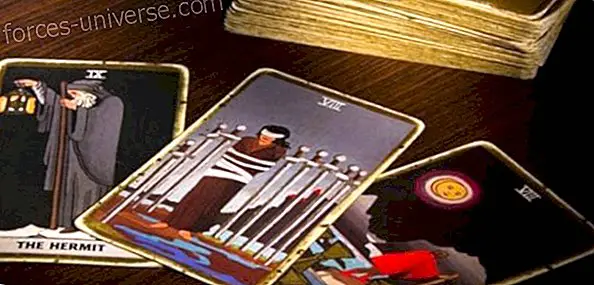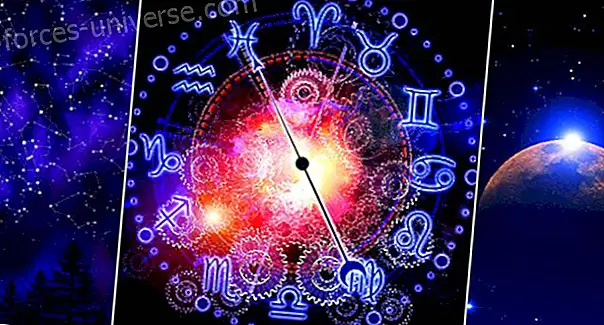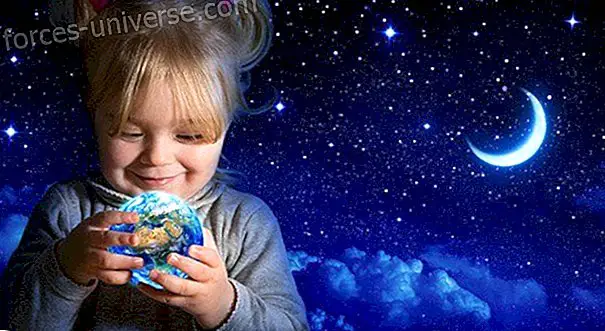DAVID BOHM: Maybe we could go deeper into the nature of the base, investigate if there is a possibility of reaching it and if she has any relationship with human beings. And also if it is possible that there is a change in the physical behavior of the brain.
Krishnamurti: Could we address this issue from the point of view of why we have ideas? And is the basis of everything that exists an idea? That is what we should be clear from the beginning. Why have ideas become so important?
DB: Maybe because the distinction between ideas and what lies beyond ideas is not clear. We often consider ideas to be more than ideas; We feel that they are not ideas but a reality.
K: That is what I want to discover. Is the base an idea, is it imagination, is it an illusion, a philosophical concept? Or is it something absolute, in the sense that there is nothing beyond?
DB: How can you say that there is nothing beyond?
K: I'm getting to that. I want to see if we look at that base, if we perceive it, or if we have a discernment of it from a concept. Because, after all, the western world, and perhaps also the eastern world, is based on concepts. All religious perspective and beliefs are based on that. Will we, then, address the issue from that point of view or do we do it as a philosophical, philosophical investigation in the sense of love of wisdom, love of truth, love of research, the work of the mind? Are we doing that when we discuss, when we want to investigate, explain or discover what that base is?
DB: Well, maybe not all philosophers have been basing their approaches on concepts, although it is true that philosophy is taught through concepts. Undoubtedly, it is very difficult to teach it unless it is through concepts.
K: What is the difference between a religious mind and a philosophical mind? Do you understand what I am trying to communicate? Can we investigate the base from a disciplined mind in knowledge?
DB: We say that fundamentally, intrinsically, the base is unknown. Therefore, we cannot begin with knowledge, and we have suggested that we should start from the unknown.
K: Yes. Let's say, for example, that x supports the existence of such a base. And all of us, yyz, say: What is that base? Prove it exists, prove it, let it manifest. When we ask these kinds of questions, do we do it with a mind that is looking for, or rather with a mind that has this passion, this love for the truth? Or do we merely say: Let's talk about it?
DB: I think that in that mind is the demand for certainty, we want to be sure. Therefore, we do not investigate.
K: Suppose you affirm that there is something like that, that the base exists, that it is immovable, and so on. And I say I want to find out. I ask you to prove it to me, to prove it to me. How can my mind, which has evolved through knowledge, which has become very disciplined in knowledge, even touch that? Because that is not knowledge, it is not a product of thinking.
DB: Yes, as soon as we say show it to me, we want to turn it into knowledge.
K: That's right!
DB: We want to be absolutely sure, so that there is no doubt. And yet, on the other side of the coin, there is also the danger of self-deception and illusion.
K: Of course. the base cannot be reached as long as there is any form of illusion, which is a projection of desire, pleasure or fear. So how do I perceive it? Is it an idea to be investigated? Or is it something that cannot be investigated?
DB: Correct.
K: Because my mind is trained, disciplined by experience and knowledge, and can only work in that area. And someone comes and tells me that this base is not an idea, that it is not a philosophical concept, that it is not something that can be produced or perceived by thought.
DB: It cannot be experienced, perceived or understood through thought.
K: What do I have left then? What should I do? I only have this mind that has been conditioned by knowledge. How can I get away from all that? How can I, a common man, educated, enlightened, experienced, feel this thing, touch it, understand it?
You tell me that words will not communicate it to me. It tells me that I must have a mind free of all knowledge, except technological. And you are asking me something impossible for me, isn't it? And if I say that I will make an effort, then that is also born of egocentric desire. What will I do then? I think it's a very serious question. It is what every serious person wonders.
DB: At least implicitly. They may not say so.
K: Yes, implicitly. Then you, who are on the other shore, so to speak, tell me that there is no boat to cross the river. Nor can I save him swimming. In fact I can do nothing. Basically it comes to that. What will you do then? You are asking me, question the mind, not the general mind but
DB: a to the particular mind.
K: You are asking this particular mind to avoid all knowledge. Has this ever been said in the Christian or Jewish world?
DB: I don't know about the Jewish world, but in a sense Christians tell us to put our faith in God, to give ourselves to Jesus as the mediator between us and God.
K: Yes. Now, Vedanta means the cessation of knowledge. And if I'm a Westerner, I say that means nothing to me. Because since the Greeks and all that, the culture in which I have lived has put the emphasis on knowledge. But when one speaks to certain Eastern minds, they accept in their religious life that a time must come when knowledge comes to an end, when the mind must be free of knowledge. Vedanta is, in its entirety, a way of seeing life. However, this is only an intellectual, theoretical understanding. But for a Westerner that means absolutely nothing.
DB: I think that in the West there has been a similar but not as widespread tradition. For example, in the Middle Ages there was a book entitled The Cloud of Ignorance, which is in that line, although it is not the fundamental line of Western thought.
K: What will I do then? How will I address the issue? I want to find that; It gives meaning to life. It is not that my intellect gave a meaning to life by inventing some illusion, some hope, some belief, but I vaguely see that this understanding, when giving that base gives it immense significance Na life.
DB: Well, people have used the notion of God to give meaning to life.
K: No, no. God is merely an idea.
DB: Yes, but the idea contains something similar to the Eastern idea that God is beyond knowledge. Most accept it that way, although a few may not accept it. Therefore, there is a certain similar notion.
K: But you say that it is not something created by thought. So, under no circumstances can one find that basis by manipulating thought in any of its forms.
DB: Yes, I understand. But what I am trying to say is that there is this problem, this danger, this illusion, in the sense that people say: yes, God is in me. I cannot express this notion exactly. The grace of God, maybe?
K: The grace of God, yes.
DB: That is, something beyond thinking.
K: As a man with some education, thoughtful, I reject all that.
DB: Why do you reject it?
K: First, because it has become common, common in the sense that everyone says that. And also because there may be in it a great feeling of illusion created by desire, by hope, by fear.
DB: Yes, but to some people this seems to be very significant, although it may be an illusion.
K: But if they had never heard anything from Jesus they would not experience Jesus.
DB: That seems reasonable.
K: If they had been taught something different, that is what they would experience. I mean in India ...
INTERLOCUTOR: But the most serious people in the field of religions, do they not say that God, or whatever it is, the Absolute, the Base, is something that essentially cannot be experienced through thinking? We could even argue that it cannot be experienced in any way.
K: Oh yes, I have said that it cannot be experienced. He says that cannot be experienced. Let's say we don't know. Here is someone who says that such a thing exists. I listen to him, and he not only communicates that to me with his presence, but through the word. Although he warns me to be careful, that the word is not the thing, but he uses the word to convey that there is something so immense that my thought cannot capture it. And I say: Very well you have explained it very carefully, but my brain, which is conditioned, disciplined in knowledge, how can it free itself from all that?
I: Could you free yourself by understanding your own limitation?
K: Then you are telling me that thinking is limited. Show it to me! Not by speaking, memory, experience or knowledge; I understand all that, but I don't get the feeling that thinking is limited, because I see the beauty of the earth, the beauty of a building, of a person, of nature. I see all that, but when you say that thought is limited, I don't feel that. It's just a bunch of words that you have told me. I understand intellectually. But I am not sorry, I do not perceive its fragrance. How will you show me - not show me - how will it help me to feel that the thought itself is fragile, that it is such an insignificant matter? So carry it in your blood, do you understand? Once I am in my blood, I already have it. You do not have to explain it to me.
I: But isn't that possibly the way to approach it, not to talk about, that for the moment it is too distant, but rather to see directly what the mind can do?
K: What is thinking.
I: The mind is thinking.
K: That is all we have. Thinking, feeling, hating, loving; You already know all that. The activity of the mind.
I: Well, I would say we don't know her, we just think we know her.
K: I know when I'm angry. I know when I feel hurt. They are not ideas, but I'm sorry, I carry the wound inside me. I'm tired of research because that's what I've done throughout my life. I turn to Hinduism, Buddhism, Christianity, Islam, and I say that I have researched, studied, examined. And I say they are nothing more than words. How do I, as a human being, have to have this extraordinary feeling of that? If I have no passion I am not investigating. I want to have this passion that will explode me explosively from my petty confinement. I have built a wall around me, a wall that I am. And man has lived with this for millions of years. And I've tried to get out of it by studying, reading, frequenting the gurus, through all kinds of things, but I'm still anchored there. And you tell me about the base, because you see something great, overwhelming, something that seems so alive, so extraordinary. And I am here, anchored in this place. You have seen, you must do something that bursts, that demolishes this center completely.
I: Should I do something or should you do it?
K: Help me! Not with prayers and all that nonsense. Do you understand what I am trying to say? I have fasted, I have meditated, I have resigned, I have made vows of this and that. I have done all those things because I have lived for a million years. And at the end of that million years I'm still where I was at the beginning. This is for me a great discovery; I thought that by going through all those things I had advanced beyond the beginning, but suddenly I find that I am back at the same point I had left. I have had more experiences, I have seen the world, I have painted, I have practiced music, dance, you understand? But I have returned to the initial starting point
I: What is me and not - me.
K: The me. And I wonder: What should I do? And what is the relationship of the human being with the base>? If I could establish a relationship, then perhaps the base would undo this center completely; which does not constitute a motive, nor a desire, nor a search for reward. I see that if the mind could establish a relationship with that, my mind would become that, okay?
I: But in that case, hasn't the mind already become that?
K: Oh no.
I: But I believe that you have just eliminated the greatest difficulty in saying that there is no desire.
K: No, no. I said that I have lived a million years ...
I: But that is a discernment.
K: No, I will not accept discernment so easily.
I: Well, I'll put it this way: it's something much more than knowledge.
K: No, you are confusing the meaning of what I said. My brain has lived for a million years. He has experienced everything; He has been a Buddhist, a Hindu, a Christian, a Muslim; It has been all kinds of things, but its essence is the same. And someone comes and says: Look, there is a base that is ... something extraordinary! Do I return to what I have already known, religions, etc.? I reject all that because I say that I have gone through all those things and that at the end of it they are like ashes to me.
DB: All those things were the attempt to create an apparent basis through thought. It would seem that through knowledge and thinking people created what they considered to be the base. And it was not.
K: It was not. Because man has consumed a million years in it.
DB: While the knowledge has to do with the base this will be false?
K: Of course. So, is there a relationship between that base and the human mind? In formulating this question, I am also aware of the danger posed by such a question.
DB: Sure, you can create an illusion of the same kind as the illusion we have already been through.
K: Yes, I've already sung that song before.
I: Are you suggesting that the relationship cannot be established by one but must arrive ...?
K: It's what I'm asking. No, it may be that I have to establish a relationship. My mind is now in a state that will accept nothing. My mind says that I have already been through all this, I have suffered, I have searched, I have examined, I have investigated, I have lived with very skilled people in this kind of thing. Therefore, I ask the question fully aware of the danger it represents, such as when Hindus say: God is in me. Which is a lovely idea! But I've already been through all that.
So I ask if the human mind has no relation to the base and if there is only a one-way corridor, from that to me ...
DB: Undoubtedly that is then like the grace of God that one has invented.
K: I will not accept that.
DB: You are not saying that the relationship is one way or that it is not one way.
K: It may be I don't know.
DB: You are not affirming anything.
K: I am not affirming anything. The only thing is that this center is demolished. Understands? That the center does not exist. Because I see that the center is the cause of all the evil, of all the neurotic conclusions, of all the illusions, of all the eagerness, of all the effort, of all the misfortunes, everything comes from that nucleus. After a million years I have not been able to get rid of him, he has not disappeared. Is there any relationship then? What is the relationship between goodness and evil? There is no relationship.
DB: It depends on what you understand by relationship.
K: Contact, communication, being in the same place ...
DB: ... come from the same root.
K: Yes.
I: But are we saying then that there is good and evil?
K: No, no. Let's use another word: Total. The total and what is not total. It is not an idea. Now, is there a relationship between these two things? Obviously not.
DB: No, if you say that, in a sense, the center is an illusion. An illusion cannot be related to what is true because the content of that illusion has no relation to the true.
K: Exactly. That is a great discovery. I want to establish a relationship with that. I want. I am using words quickly to communicate something. This insignificant little thing wants to establish a relationship with that immensity. Can not.
DB: Yes, not only because of the vastness of that, but because in fact this thing really does not exist.
K: Yes.
I: But I don't see it. He says that the center is unreal, but I don't see that the center is unreal.
DB: Unreal in the sense of not being genuine but an illusion. I want to say that something is working but it is not the content we know.
K: Do you see that?
I: You say the center should explode. It does not explode because I do not see its falsehood.
K: No. You have not understood what I said. I have lived a million years, I have done all this. And in the end I'm still back in the beginning.
I: Then you say that the center must explode.
K: No, no, no. The mind says that this is too small. And he can't do anything about it. He has prayed, he has done everything. But the center is still there. And someone tells me that this base exists. I want to establish a relationship with that.
I: He tells me that this thing exists and also says that the center is an illusion.
DB: Wait, that's too fast.
K: No. Wait. I know that is there. Call it what you want, an illusion, a reality, a fiction, whatever you like. Is there. And the mind says that it is not enough; He wants to capture that. He wants to interact with him. And that says: I'm sorry, it can't be. That's it!
I: Is that mind that wants to connect, relate to that, is the same mind that constitutes the self?
K: Don't analyze it, please. You are missing something. I have lived all this. I know, I can argue with you, from top to bottom. I have a million years of experience and this has given me some capacity. And I realize that after all there is no relationship between the truth and me. And that is a tremendous shock to me. It is as if you had left me out of combat, because a million years of experience say: Go after it, look for it, pray for it, fight for it, cry, sacrifice for it. And I have done all that. And suddenly I am reminded that I cannot establish any relationship with that. I have shed tears, I have left my family, I have abandoned everything for that. And that says: no relationship What happened to me then? This is what I want to find out. Do you understand what I am saying, what has happened to me? What has happened to the mind that has lived this way, that has done everything in the search for that, when it says:. This is the most immense thing ...
I: It's a tremendous blow to the self if you say that.
K: Is it for you?
I: I think it was, and then ...
K: No! I ask him: is it a blow to discover that his brain, his mind, his knowledge are useless? That all your research, all your struggles, all the things that you have accumulated for years and years, for centuries, are worthless at all? Do you lose your mind because you say you have done all this for nothing? Virtue, abstinence, control, all that; And in the end he ends up saying that these things are useless! Do you understand what that does to one?
DB: I understand that if all that disappears, then it doesn't matter.
K: Absolutely, one has no relationship. What you have done or not done is worthless at all.
DB: Not in any fundamental sense. It has a relative value, relative only within a certain structure that in itself lacks value.
K: Yes, thought has a relative value.
DB: But the structure in general is worthless.
K: That is true. the base says: anything you have done in the Tiera makes no sense. It's an idea? Or is it a reality? It is an idea if you have told me and I continue in the same, fighting, wishing, looking blindly. Or it is a reality, in the sense that I suddenly understand the futility of everything I have done. Therefore, one must be very careful to make sure that it is not a concept, or rather that one does not translate it into a concept or an idea, but rather that it receives the full impact!
I: Look Krishnaji, for hundreds of years, probably since man has existed, he has been pursuing what he calls God or.
K: As an idea.
I: But then came the scientific mind and also said that that is just an idea, nonsense.
K: Oh no! The scientific mind says that by investigating the matter we may find the basis.
DB: Yes, many feel it. Some would even add brain research.
K: Yes. That is the purpose of investigating the mind, not to eliminate each other from the face of the earth through weapons. We are talking about good scientists, not government scientists but those who say: We are examining matter, the brain and all that, to find out if there is anything beyond.
I: And many people, many scientists would say that they have found the base, that the base is empty, that it is the void. That is a different energy from man.
K: Is that an idea for them or is it a reality that affects their life, blood, mind, their relationship with the world?
I: I think it's just an idea.
K: Then I'm sorry, I've already been through that. I was a scientist ten thousand years ago! Understands? I've been through all that. If it's just an idea, we can both play that game. I can send the ball to you, it's on your court, and you can return it to me. We can play that. But I'm done with that kind of game.
DB: Because generally what people discover about matter does not seem to affect it deeply, psychologically.
K: No, of course not.
DB: One might think that if they saw the total unity of the universe, they would act differently, but they don't see it.
I: It could be said that these discoveries on the matter have affected their lives somewhat. One sees that the whole doctrine of the communist world is founded on the idea (which they consider to be a fact) that everything that exists is merely a material process, which is, in essence, empty. Therefore, man has to organize his life and society according to those dialectical principles.
K: No, no, dialectical principles are an opinion opposed to another opinion, the man who hopes to find the truth based on opinions
DB: I think we should put that aside. There are many ways to consider the different meanings of the word dialectic, but what is needed is to see reality as a fluid movement; not seeing things as if they were fixed, but seeing them moving and connected to each other. It seems to me that one could say that whatever the system was. so those people managed to observe it, although they saw this unit, it did not fundamentally change their lives. In Russia the same structures of the mind are maintained, if not worse, than elsewhere. And wherever people have tried this, it has not really affected, fundamentally their way of feeling and thinking, their way of life.
I: What I wanted to say is that the denial of the search for the base has not caused any commotion among the people.
K: No! I'm not interested. It has been a tremendous shock to me to discover the truth that all churches, prayers, books, have no meaning whatsoever, except as to how to establish a better society and such things.
DB: If we could manage to put this point in order, then that would have great meaning, to constitute a good society. But while this disorder prevails in the center, we cannot make use of it in the proper way. It seems to me that it would be much more accurate to say that there is a great potential meaning in all that. But it does not affect the center and there is no indication that it has ever done so.
I: Look, what I don't understand is that there are many people who have never in your life searched for what you call the base.
K: They are not interested.
I: Well, I'm not so sure. How would you approach such a person?
K: I have no interest in addressing anyone. the base says that all my works, everything I've done, are insignificant. And if I can abandon all that, my mind is the basis. Then I move from there. From there I create society.
DB: One could say that as long as one is looking for the base somewhere else through knowledge, one is creating obstacles.
K: So, returning to the subject, why has man done this?
DB: Have you done what?
K: Accumulate knowledge. Apart from the need to possess factual knowledge in certain areas, why has this burden of knowledge continued for so long?
DB: Because in a sense man has been trying to produce a solid base through knowledge. Knowledge has tried to create a base. That is one of the things that have happened.
K: And what does that mean?
DB: It means, again, illusion.
K: Which means that the saints, the philosophers, have taught me to search in knowledge and through knowledge.
I: To create a base. In a way in the past there were all these periods when humanity was imprisoned in superstition. And knowledge could end that.
K: Oh no.
I: He did it to some extent.
K: Knowledge has only incapacitated me to see the truth. I stick to that. It has not freed me from my illusions. Knowledge itself can be illusory.
I: That may be, but it has made some illusions disappear.
K: I want to make all the illusions that I have, not a few, disappear. I got rid of my illusion regarding nationalism, of my illusion regarding belief, regarding this, that. In the end I realize that my mind is illusion. Look, for me, that I have lived for a thousand years or a million years, it is something immense to discover that all this is absolutely useless.
DB: When you say that you have lived for a thousand years, does that mean, in a sense, that the whole experience of humanity is ...?
K: ... it's me.
DB: ... it's me. Does that feel?
K: That's right.
DB: And how do you feel it?
K: How do we feel anything? Wait a moment, I will tell you. It is not sympathy or empathy, it is not something you have desired; It is a fact, an absolute, irrevocable fact.
DB: Could we maybe share that feeling? That seems to be one of the missing links, because you have repeated it very often as an important part of all this.
K: Which means that when you love someone there is no me; this is Love.
Similarly, when I say that I am humanity, that is, it is not an idea, it is not a conclusion; It is part of me.
DB: Let's say it's a feeling of having gone through all that, for everything you describe.
K: Human beings have been through all that ..
DB: If others have gone through it, then I have also gone through it.
K: Of course. You don't realize that.
DB: No, we separate things.
K: If we admit that our brains are nothing but the brain that has evolved over millennia ...
DB: Let me say why this is not communicated so easily; Everyone feels that the content of his brain is, in a way, individual, that he has not gone through all that. Let's say someone thousands of years ago went through science or philosophy. How, then, does that affect me? This is what is not clear.
K: Because I am imprisoned in this egocentric, narrow and small cell that refuses to look beyond. But you, as a scientist, as a religious man, come and tell me that your brain is the brain of humanity.
DB: Yes, and that all knowledge is the knowledge of humanity. So we somehow have all the knowledge.
K: Of course.
DB: Although not in detail.
K: Then you tell me that and I understand what you mean, not verbally or intellectually; I understand that it is so. But I come to that only when I have abandoned common things, such as nationality, and so on.
DB: Yes, we have abandoned the divisions and we can see that the experience belongs to all mankind.
K: That is so obvious! One goes to the most primitive village in India and the farmer will tell him all about his problems, his wife, his children, his poverty. It is exactly the same as elsewhere, only that he wears different clothes or whatever! For this it is an incontestable fact; It’s like that. He says: . But we do not accept it, we are too smart. We are soaked with controversies and arguments and knowledge! We do not see a simple fact, we refuse to see it. And it comes x and says: see it, it's there. Then he starts the immediate machinery of thought and says: remain silent. Then I practice silence! I have done it for a thousand years and it has not led anywhere.
Therefore there is only one thing, and it consists in discovering that everything I have done is useless, ashes! You see that does not depress one. That is its beauty. I think it's something like the Phoenix.
DB: Rising from the ashes.
K: Born from the ashes.
DB: In a way, getting rid of all that is freedom.
K: Something new is born.
DB: What you said before is that the mind is the base, it is the unknown.
K: The mind? Yes. But not this mind.
DB: In that case, it is not the same mind.
K: If I have gone through all that and I have reached a point where I have to end all that, it is a new mind.
DB: That is clear; the mind is its content and the content is knowledge and without that knowledge that is a new mind.
April 12, 1980
OJAI, CALIFORNIA
Technorati tags: Krishmamurti, Eastern Wisdom, Mysticism
Source: http://www.mikelbruno.blogspot.com/
Seen in: el-amarna






